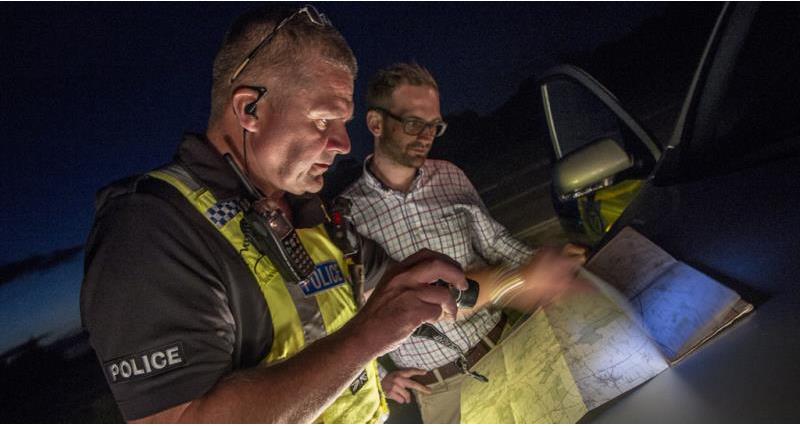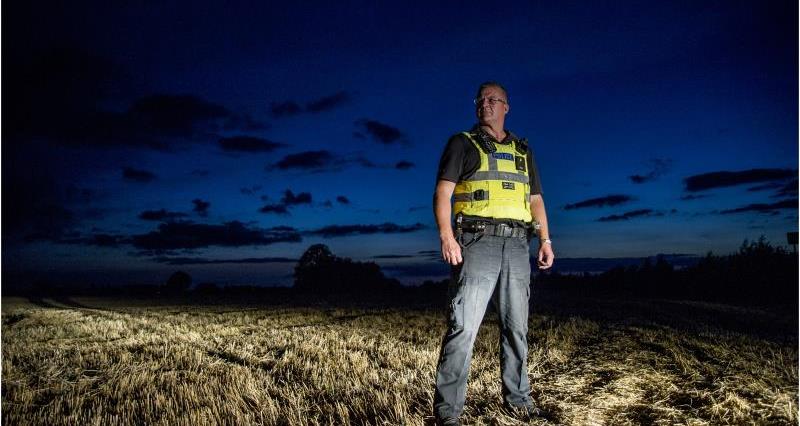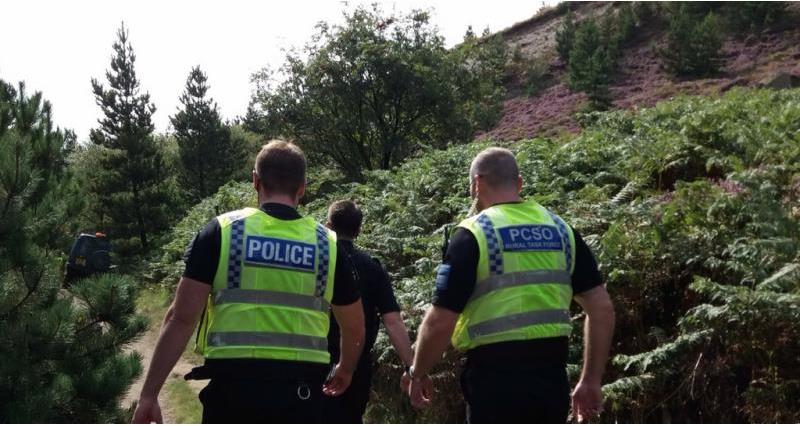Lincolnshire
“This isn’t like Claude Greengrass in Heartbeat, where these criminals are just taking a rabbit for the pot,” chief inspector Jim Tyner said. “These are organised criminals betting hundreds of thousands of pounds. We need to use as much power and legislation as possible.”
He was speaking to police officers from Lincolnshire’s surrounding counties as they planned an evening’s Operation Galileo in Spalding Station.
Galileo focuses on hare coursing, which has caused enormous stress and worry for farmers and rural dwellers recently. It’s been around for 300 years, but was made illegal under the Hunting Act of 2004. It involves flushing out hares from recently-harvested fields, then setting lurchers or greyhounds on them. It has turned into an illegal betting activity that sees huge sums of money change hands.
 © Jason Skarratt Photograpy
© Jason Skarratt Photograpy
If police catch criminals in the act they often have to make a decision on how safe it is to pursue them on country roads. Quick communications, good rural vehicles and clever planning by organised criminal groups has left the police on the back-foot in recent years. So when the chief constable started his new post in February, he was invited to a meeting by the NFU and restarted Operation Galileo as a result, which has put hare coursing front and centre in the region.
The magistrates don’t have an awareness of the problems hare coursing creates, and the CPS doesn’t seem to have the level of evidence it needs to work effectively, so if they are found guilty, people who can earn up to £50,000 from one evening of hare coursing are only getting fined a few hundred pounds.
Chief Constable Skelly said: “I can improve the level of evidence, such as footage from aerial photography or on-body video, and build an intelligence picture that goes along with the evidence. And I can meet magistrates about how they tolerate hare coursing cases when they come through courts.”
The NFU is calling for the Sentencing Council to review the range of rural crimes experienced by farming communities, and to ensure sentencing guidelines reflect the true cost and impact of those crimes.
North Yorkshire Rural Crime Task Force
In light of the NFU’s Rural Crime Report and the NFU Mutual’s research into the cost of rural crime, North Yorkshire Police has invested significantly in setting up the region’s 14-strong Rural Task Force. However, sending a team to aimlessly patrol the countryside in the hope of finding someone engaging in criminal behaviour would be an unwise use of taxpayer’s money. This is where intelligence analyst Tom Hoyle comes in: “Blindly trying to cover the whole of the North Yorkshire area is impossible, so my colleague Judith and I try to add a bit more evidence-based policing to the work we do.
 © Jason Skarratt Photograpy
© Jason Skarratt Photograpy
“Part of my job is mapping all the offences we’ve had in the past year so I can observe what areas are hotspots for rural crime. I can also then see when the peak months are for certain crimes and what ones occur year-round.”
Using trends is an important part, as Tom can recognise key places and times, and identify repeat offenders and victims. This means that he can direct the team accordingly, such as running security checks on premises within theft-prone areas or pinpointing when it’s imperative to have officers on patrol.
Tom also uses the data he collects to look at the bigger picture: “When I started with the team just over a year ago, I wrote a problem profile for the area to determine where, when and what types of crimes have been happening. We’ll revisit that next year, and see how much impact the rural task force has had since it’s been in action.
“We expect rural crime figures to have increased in the first year, but that’s because people are now reporting rural offences more since the task force has been in existence and visible within the community.”
It’s incredible how technology and data can help the police with their investigations. Mobile phones, especially, are a key weapon in gathering evidence to prosecute criminals. If police can gain access to phone call logs, it’s possible to connect individuals to places at certain times due to the signals they give off.
With officers on the ground protecting the community and Tom working behind the scenes, the North Yorkshire force is taking a holistic approach to policing and is striving to make a meaningful difference. If the public use the services available to them and the force continues to make waves like they are already, there’s a chance we can keep pace with criminals and make the countryside safer for everyone.
Cyber case study: email scams
Following the reports from the NFU and NFU Mutual, and the recent coverage in British Farmer & Grower, one member was keen to share his experience of being targeted by phishing emails.

Today, I have received an email purporting to be from BT, saying my BT OneBill is available and to follow the link.
This is the second time this has happened prior to when I would expect my bill to be available. The first time the email gave an amount that was far above expectations, this time I was just sent the link.
Having checked my BT account, the next bill is not yet available so the email I received is obviously a scam. The sender’s email address is ZWJpbGxpbmc0YnVzaW5lc3NAYnQuY29t<ZWJpbGxpbmc0YnVzaW5lc3NAYnRkbmV0LmNvbQ== and is signed by Dean Echevaria, CEO BT Business.
No doubt I’m not the only farmer recipient – my BT account is domestic not business, which is another clue.
Clearly, email fraudsters are casting as wide a net as possible. If you have any examples that look suspicious, send them to us or contact NFU CallFirst on 0370 845 8458 to make sure your fellow farmers aren’t caught by a similar situation.
